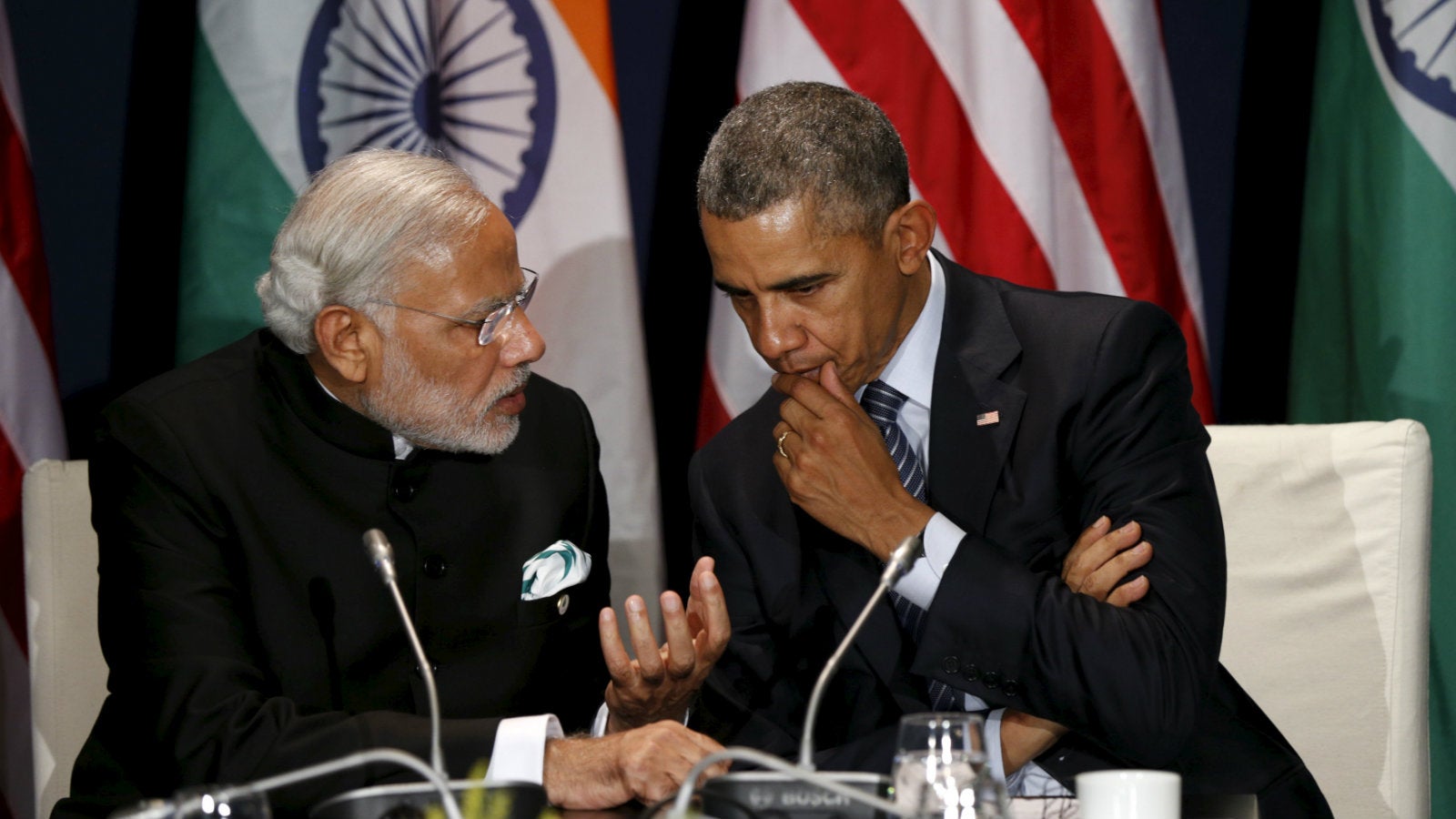If the West wants clean energy from India, give us the technology to make it
Prime minister Narendra Modi flagged off India’s presence at the Conference of Parties (COP21) on Nov. 30 with bold plans that will shape geopolitics well beyond the Paris summit.


Prime minister Narendra Modi flagged off India’s presence at the Conference of Parties (COP21) on Nov. 30 with bold plans that will shape geopolitics well beyond the Paris summit.
But the backroom talk in Paris still depicts India as a spoiler. Indeed, there is an unspoken war being waged with India on one side and the US on the other. It is not so much about the right to put more carbon into the atmosphere but about future innovation and control of the 21st-century technologies that will shape the post-carbon economy.
Green technologies can succeed only if they are cost-competitive with coal and oil. This means sharing intellectual property freely so that products created can be affordable for low-income consumers, i.e. the bulk of the Indian market. The current global intellectual property rights regime doesn’t enable this, nor allows Indian companies to build upon existing know-how to make products more suited to Indian needs.
India’s plans are of an unprecedented nature, as seen by the launch of the solar alliance on the first day of the Paris Summit. Solar technology is now cheaper than hydro and nuclear, but more expensive than coal. Thus by making a big commitment to solar, India is opting for a potentially more expensive path than any major economy has taken so far—significant because India is still a low-income economy with 300 million people without access to basic energy.
If Indian consumers are asked to consume a more expensive energy option, then the developed world and its private corporations must reciprocate by sharing technology and putting aside their financial interest under the guise of IP. Modi’s reiteration of India’s position of “common but differentiated responsibility” must be seen in this context. Differentiated responsibility is not just about the flow of western aid or investment, but the flow of relevant technologies.
The world community has a survival interest in India not burning as much coal as it has. If India’s carbon consumption rises to match even the global average of 4.9 tonnes per capita, let alone EU levels, then all hopes of reducing climate change are dashed.
There is widespread scepticism about India’s ability to translate its ambitious target of installing 175,000 MW of renewable energy capacity—thus meeting 40% of energy needs from non-fossil fuels by 2030. Without a favourable technology regime, this scepticism will become a self-fulfilling prophecy with devastating implications for climate change.
Within India, there is also scepticism about cooperation from the developed countries. A positive gesture will be the US withdrawal of its WTO case against India on sourcing solar equipment locally. This will give India a tangible benefit for choosing costly energy in order to make a significant contribution to COP21 goals.
This is the offer and the challenge that Modi has posed in Paris. Supporting India’s plan is, above all, in the interests of all those with an eye on the country’s burgeoning consumer class. India’s car market will soon match that of the US and China. Ensuring that the bulk of these autos run on solar electricity rather than petrol, is one of the biggest business opportunities for India and even developed countries where electric vehicles are still constrained for supporting infrastructure. India is a promising location for the latest innovations in solar panels, batteries and recharge stations precisely because large segments of its consumer class are first-timers living in virgin territory for markets. Marrying this climate-mitigation strategy with manufacturing in India can be the ideal partnership, one where the benefits of job creation and asset accumulation are widely dispersed and not concentrated in a few hands.
Beyond governments, India’s delegation to Paris can garner finance to back innovations which are affordable to mass consumers—not just elite—from the myriad gatherings of socially responsible investors, tech innovators and business people in Paris.
Low carbon growth will still put a serious burden on the planet’s eco-systems. Recognising this, Modi hinted at a new India-led model of consumption, through references to conservation and self-restraint as essentials of Indian culture. By invoking Mahatma Gandhi’s idea of trusteeship as the core value for addressing climate change, Modi has raised the bar for the global forum at Paris—as well as for his own government and Indian businesses.
This article was originally published on gatewayhouse.in. Read the original article here. We welcome your comments at [email protected].